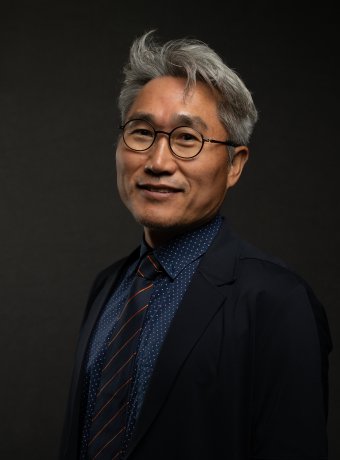Chang Kyoung Choi

- Associate Professor, Mechanical and Aerospace Engineering
- Affiliated Associate Professor, Biomedical Engineering
- Assistant Director of Undergraduate Studies, Mechanical and Aerospace Engineering
- PhD, Mechanical, Aerospace, and Biomedical Engineering, University of Tennessee
- MS, Mechanical Engineering, Chungang University
- BS, Mechanical Engineering, Chungang University
Biography
Dr. Chang Kyoung (CK) Choi is an associate professor of Mechanical and Aerospace Engineering at Michigan Technological University. Prior to this appointment in 2009, he was a post-doctoral researcher at Oak Ridge National Laboratory (ORNL) from Jan. 2008 to Dec. 2008. He received his BS and MS in Mechanical Engineering from Chung-ang University in 1999 and 2001, respectively. He received a PhD in Mechanical Engineering from the University of Tennessee-Knoxville in 2007. Right after his doctoral graduation, he continued and expanded his research areas by working in three different fields of Mechanical Engr., Biomedical, Engr., and Biology as a post-doc in UT-Knoxville. His research interests are microscale heat transfer, micro-fluidics, micro-encapsulation, micro-/nano-fabrications, opto-electrical cellular sensing, multi-scale interface phenomena, and chemotaxis. He is particularly interested in developing a versatile and highly capable multimodality imaging system coupled with the culture platform in order to make in vitro data collection even more comprehensive. He is currently a chair of visualization technical committee (K-22) in the heat transfer division of American Society of Mechanical Engineering (ASME) and a topic organizer of Photogallery-heat transfer visualization in the ASME-IMECE and the ASME Summer Heat Transfer Conference.
Links of Interest
Areas of Expertise
- Microscopic Imaging Techniques
- Micro-/nano-fabrications
- Cellular Sensing & Single Protein Tracking
Research Interests
- Opto-electric Cellular Sensing
- Microfluidics and Microscale Heat Transfer
- Droplet Impingement on Patterned Metal Surfaces
- Evaporation of Thin Films and Droplets
- Multiscale Interface Phenomena
- Neutron imaging
- Fluid Flow-induced Shear Effect on Chondrons; Regeneration of pericellular matrix from chondrocytes using microencapsulation;